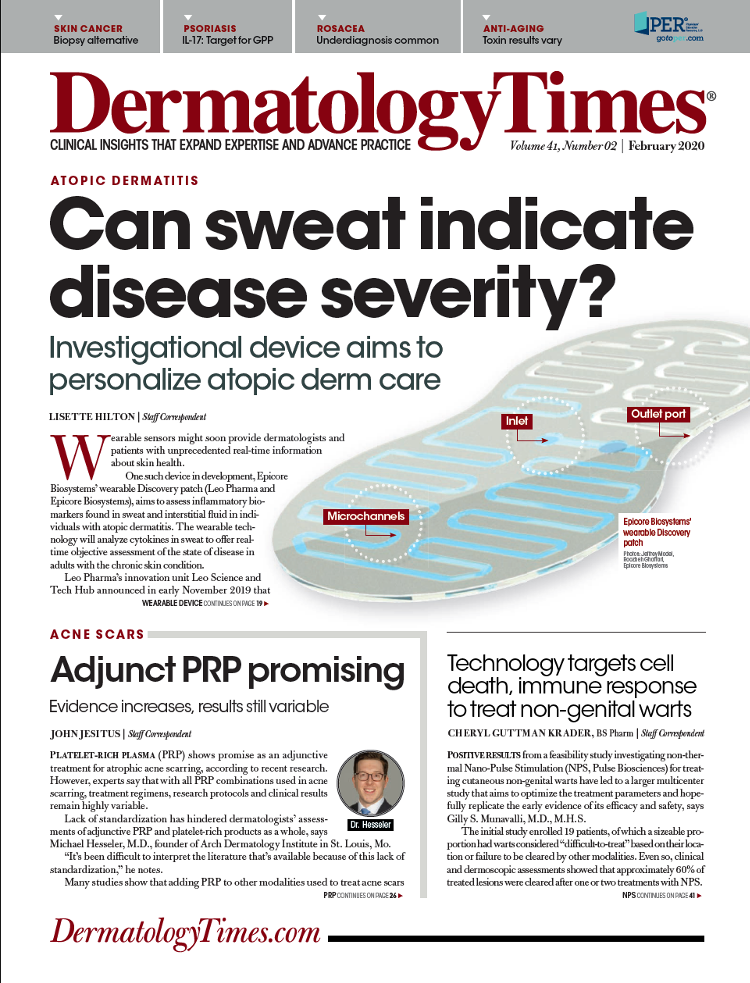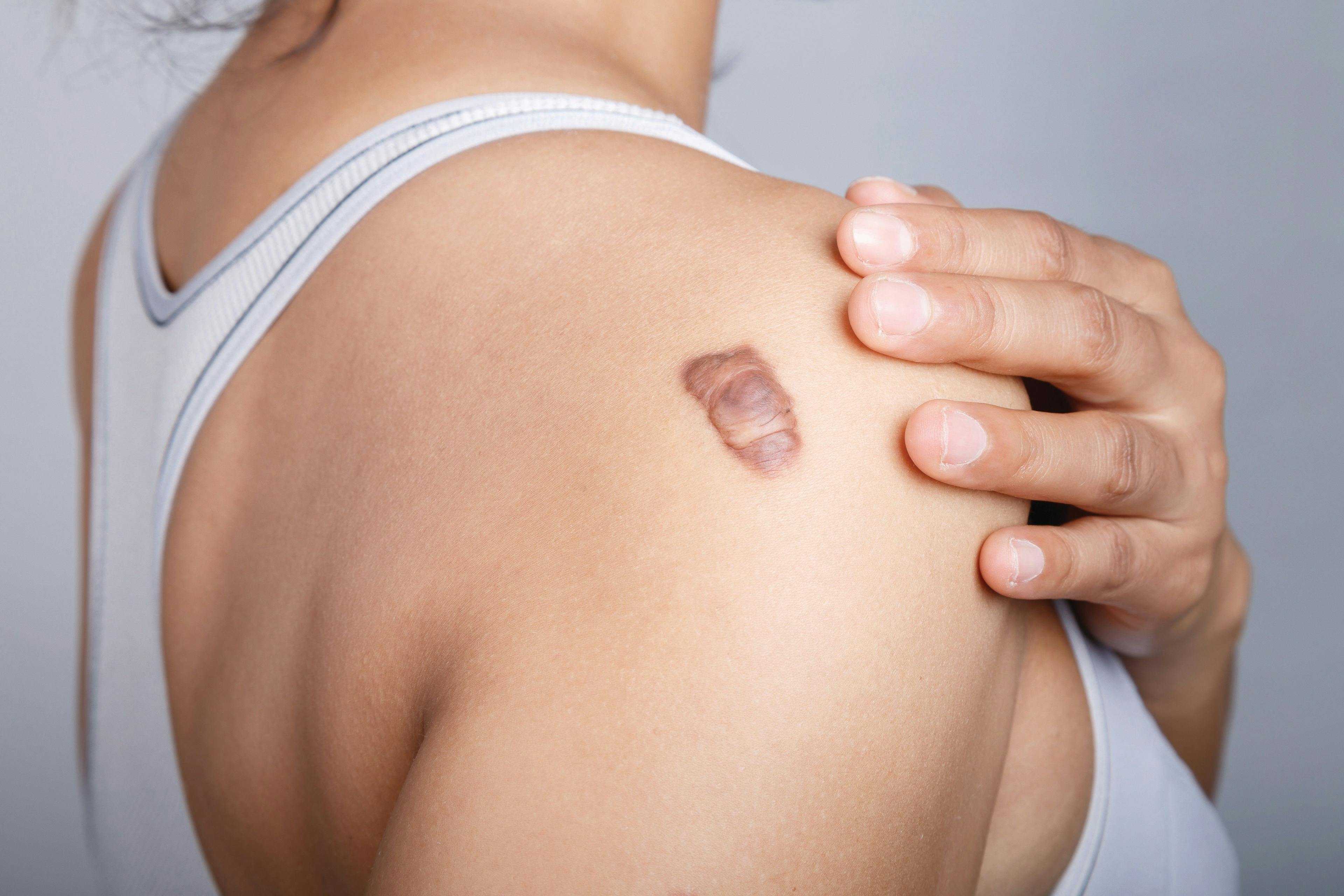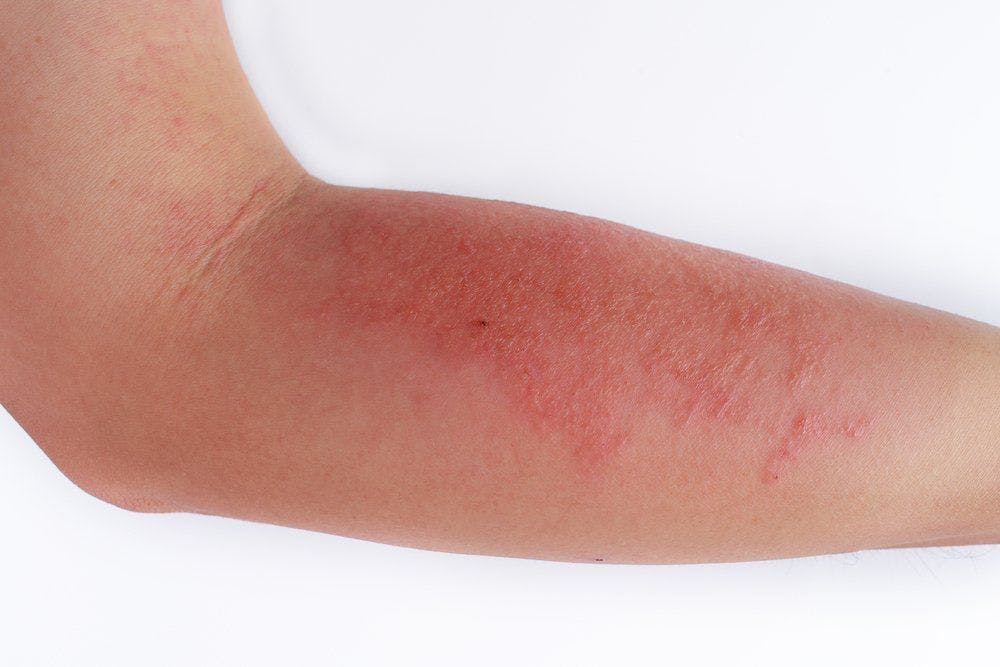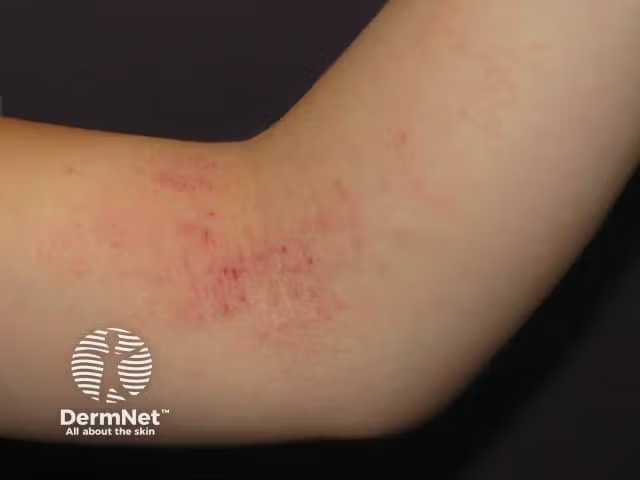- Acne
- Actinic Keratosis
- Aesthetics
- Alopecia
- Atopic Dermatitis
- Buy-and-Bill
- COVID-19
- Case-Based Roundtable
- Chronic Hand Eczema
- Drug Watch
- Eczema
- General Dermatology
- Hidradenitis Suppurativa
- Melasma
- NP and PA
- Pediatric Dermatology
- Pigmentary Disorders
- Practice Management
- Precision Medicine and Biologics
- Prurigo Nodularis
- Psoriasis
- Psoriatic Arthritis
- Rare Disease
- Rosacea
- Skin Cancer
- Vitiligo
- Wound Care
Publication
Article
Dermatology Times
Can sweat shed a light on disease severity in atopic dermatitis?
Author(s):
A wearable patch may soon be able to assess in flammatory biomarkers found in the sweat and interstitial fluid in individuals with atopic dermatitis to ultimately provide real-time information about their skin health.
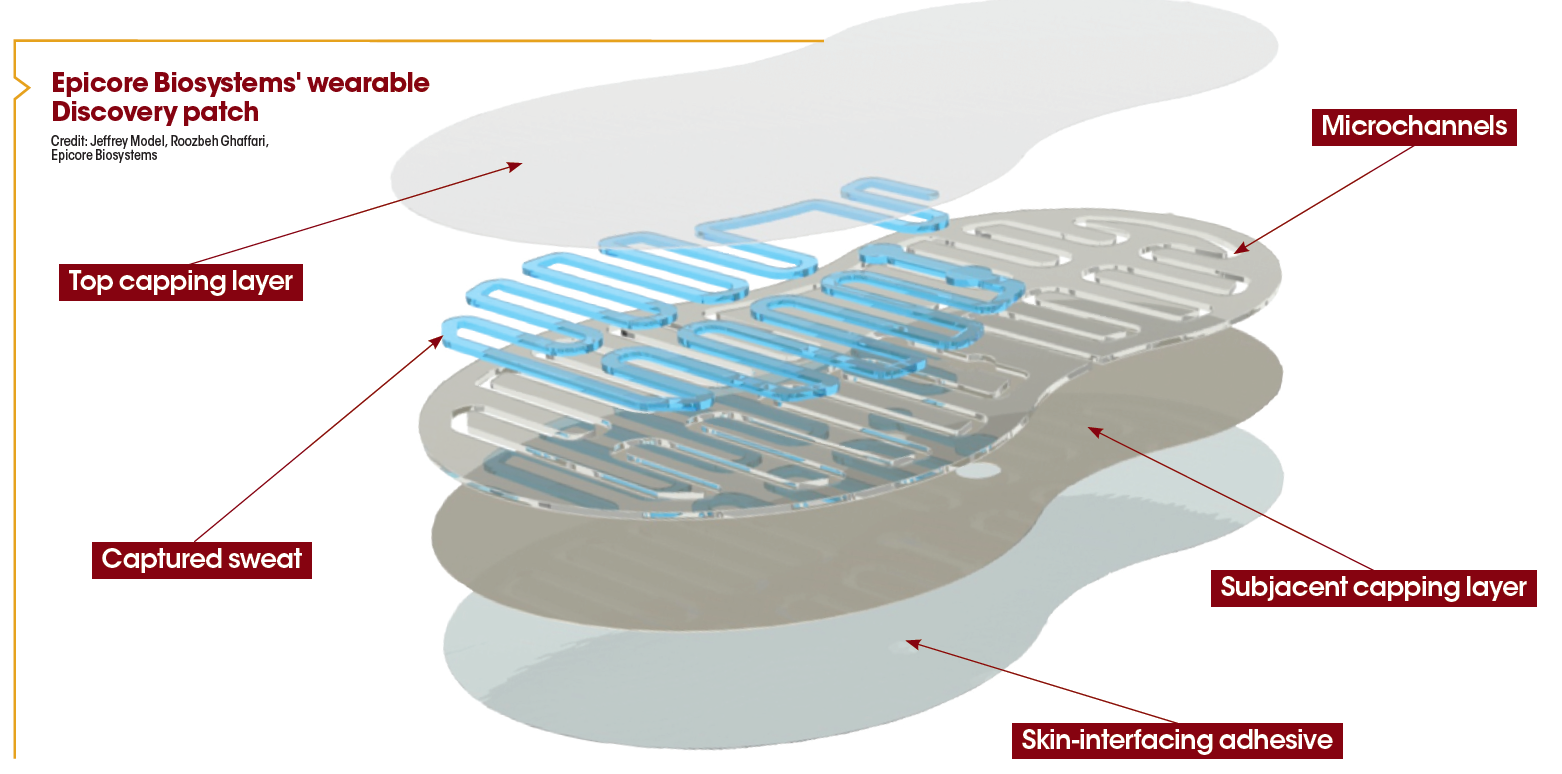
Wearable sensors might soon provide dermatologists and patients with unprecedented real-time information about skin health.
RELATED: Striving to measure skin health
One such device in development, Epicore Biosystems’ wearable Discovery patch (Leo Pharma and Epicore Biosystems), aims to assess inflammatory biomarkers found in sweat and interstitial fluid in individuals with atopic dermatitis. The wearable technology will analyze cytokines in sweat to offer realtime objective assessment of the state of disease in adults with the chronic skin condition.
Leo Pharma’s innovation unit Leo Science and Tech Hub announced in early November 2019 that Northwestern University Feinberg School of Medicine Department of Dermatology researchers are starting a phase 2 proof-of-principle study using the patch on adult atopic dermatitis patients to track inflammatory biomarkers on different skin locations.
Northwestern dermatologists completed a study in 2019 testing the clinical utility of the Discovery platform showing the wearable technology quantified target cytokine concentrations in sweat in different skin locations. Steve Xu, M.D., assistant professor of Dermatology at Northwestern and an advisor to Epicore, says sweat is the next frontier for biomarker discovery - one that will open new avenues for early intervention and precision therapy.
“Epicore is an exciting company because it’s really leveraging wearable devices for a biofluid that we’ve long ignored. Sweat offers a rich source of information that Epicore can collect noninvasively,” Dr. Xu says.
Research on the technology is an opportunity to see how sweat might serve as an indicator of disease severity.
RELATED: Disease burden high for adolescents with atopic dermatitis
“You’ll be able to measure biomarkers that could predict when a flare is coming on before it’s evident. It could also indicate how individual people respond to a certain medication. There’s a lot of opportunity to explore sweat as a potential tool to manage and treat atopic dermatitis better,” he says.
The Discovery patch is in the research and development phase but could soon come to market.
“We have been working on some of these research projects in collaboration with Epicore and Leo Pharma.
They’re using these patches and applying them on atopic dermatitis patients as well as healthy normal people and collecting sweat directly from these subjects. At this point, we’re still identifying and validating these signatures. But once we do that, I think it’s a relatively rapid path to clinical deployment,” he says. Once on the market, the Discovery patch would offer a noninvasive technology that’s easy to apply and painless.
“What’s particularly exciting about this effort is the opportunity to map in ammation biomarkers around atopic dermatitis lesions locally and across the entire body from individual wearers. This foundational insight about local and global biochemical signals will inform new classes of wearable devices for tracking skin conditions continuously outside of clinical settings,” says A.J. Aranyosi, Ph.D., chief scientific officer and co-founder of Epicore Biosystems.
In the real world, Dr. Xu envisions that this wearable microfluidic device platform will be something patients and doctors use collaboratively, as well as a consumer health monitoring technology.
“Right now, we’re completely reactive. We wait for bad things to happen and we try to catch up. I think the opportunity here is to be able to get in front of the condition - in front of the disease - using biomarkers in sweat. And then hopefully reducing the pain and suffering that’s caused by this condition,” he says.
RELATED: Skin microbiome as clinical biomarker for atopic dermatitis
This isn’t the first wearable device that Dr. Xu has researched or helped to develop. He was among the developers of a UV sensor that tells wearers how much UV they’re getting. That technology is available at Apple stores worldwide through L’Oréal.
“It’s the world’s first battery-free sun powered sensor for UV. It helps people stay safe in the sun,” says Dr. Xu. “That product is one example of a wearable that certainly has permeated dermatology.”
L’Oréal and Epicore Biosystems introduced My Skin Track pH earlier in 2019. My Skin Track pH combines Epicore Biosystems’ wearable microfluidic sensor technology with L’Oréal’s expertise in skin care. It measures personal skin pH levels and creates customized skin care regimens and product recommendations.
“That’s pretty exciting and that has relevance obviously to patients with atopic dermatitis because it is a good marker of skin barrier function,” says Dr. Xu. “New technologies are coming online and measuring useful things. They’re affordable and applicable to a wide variety of skin conditions.
